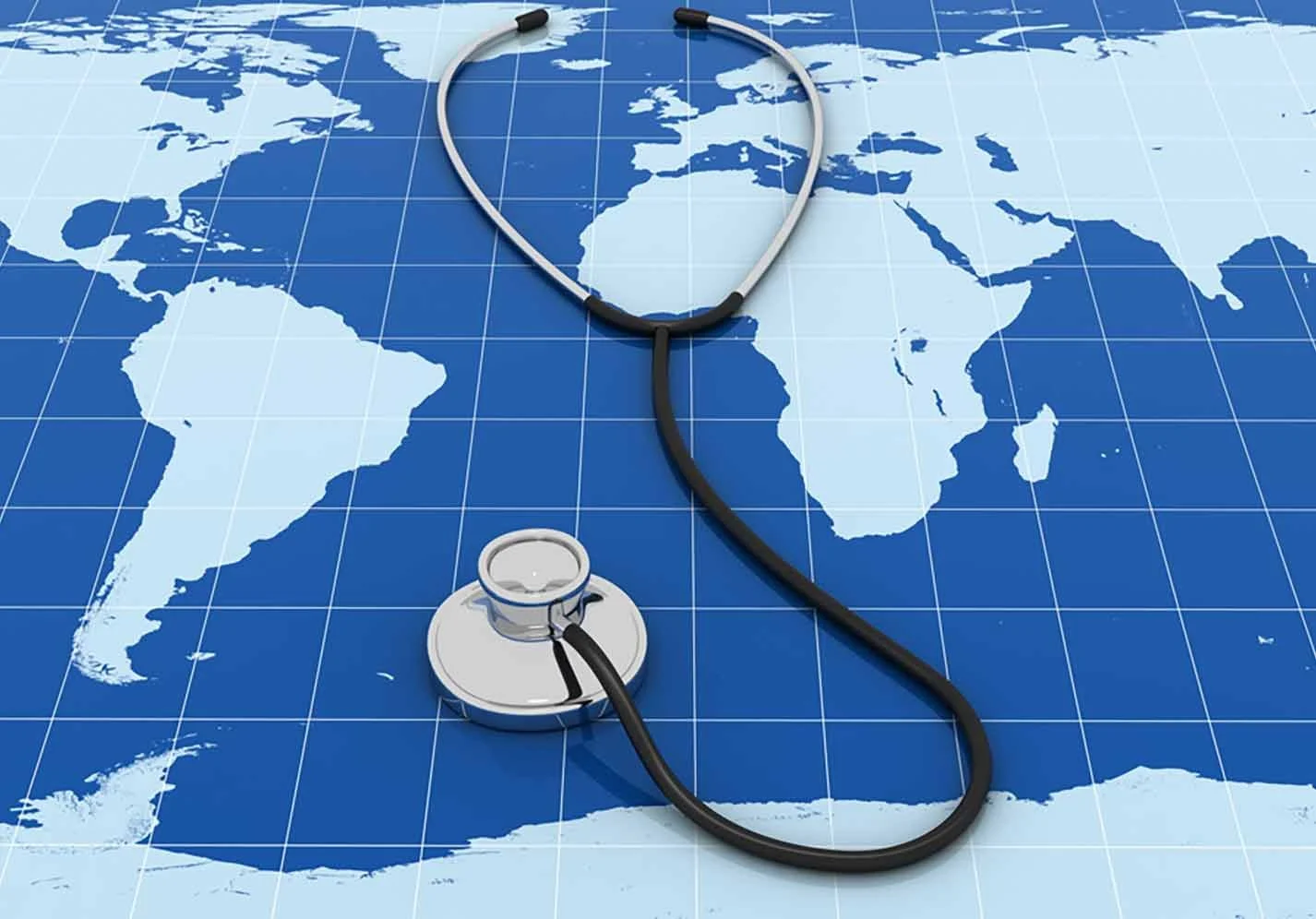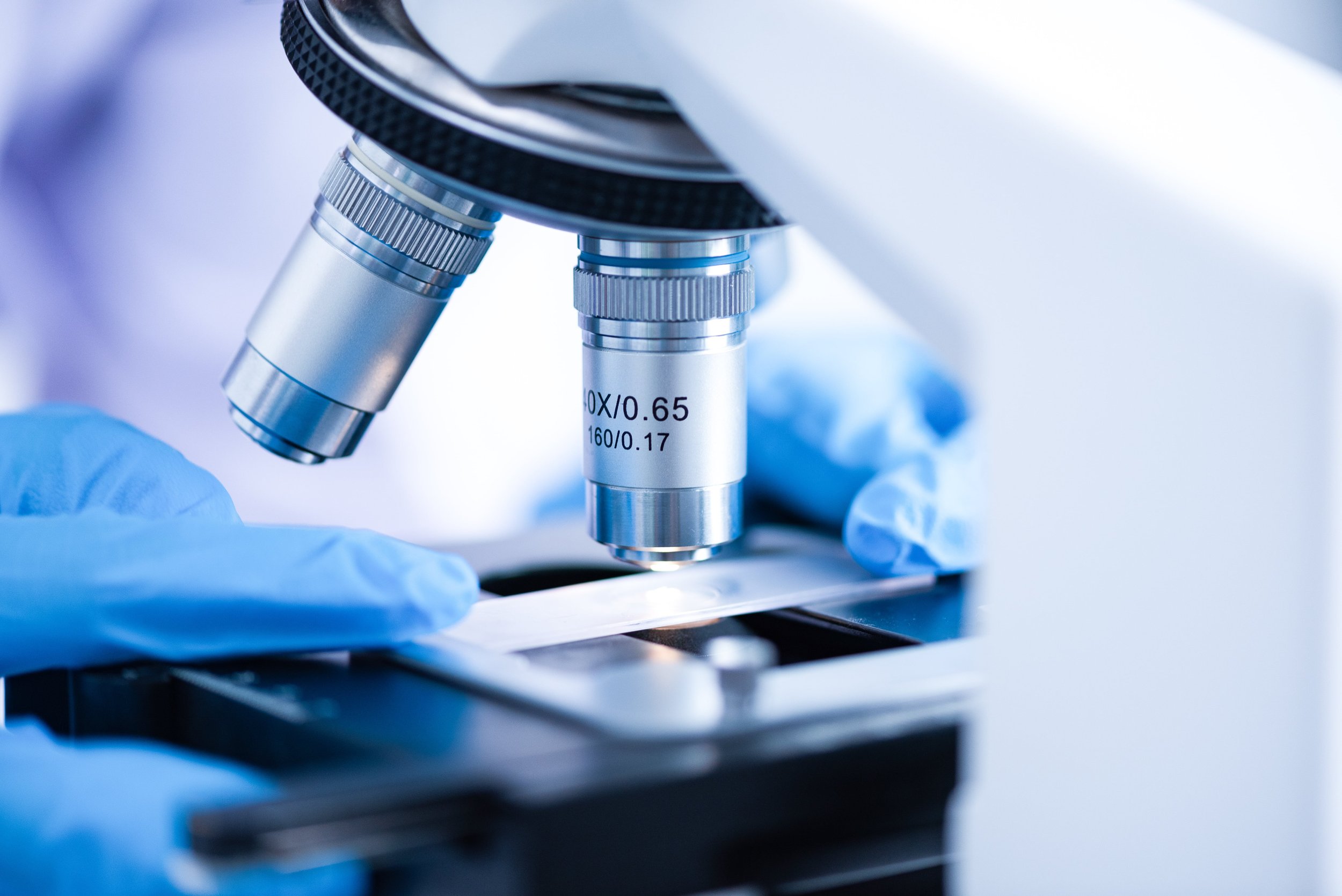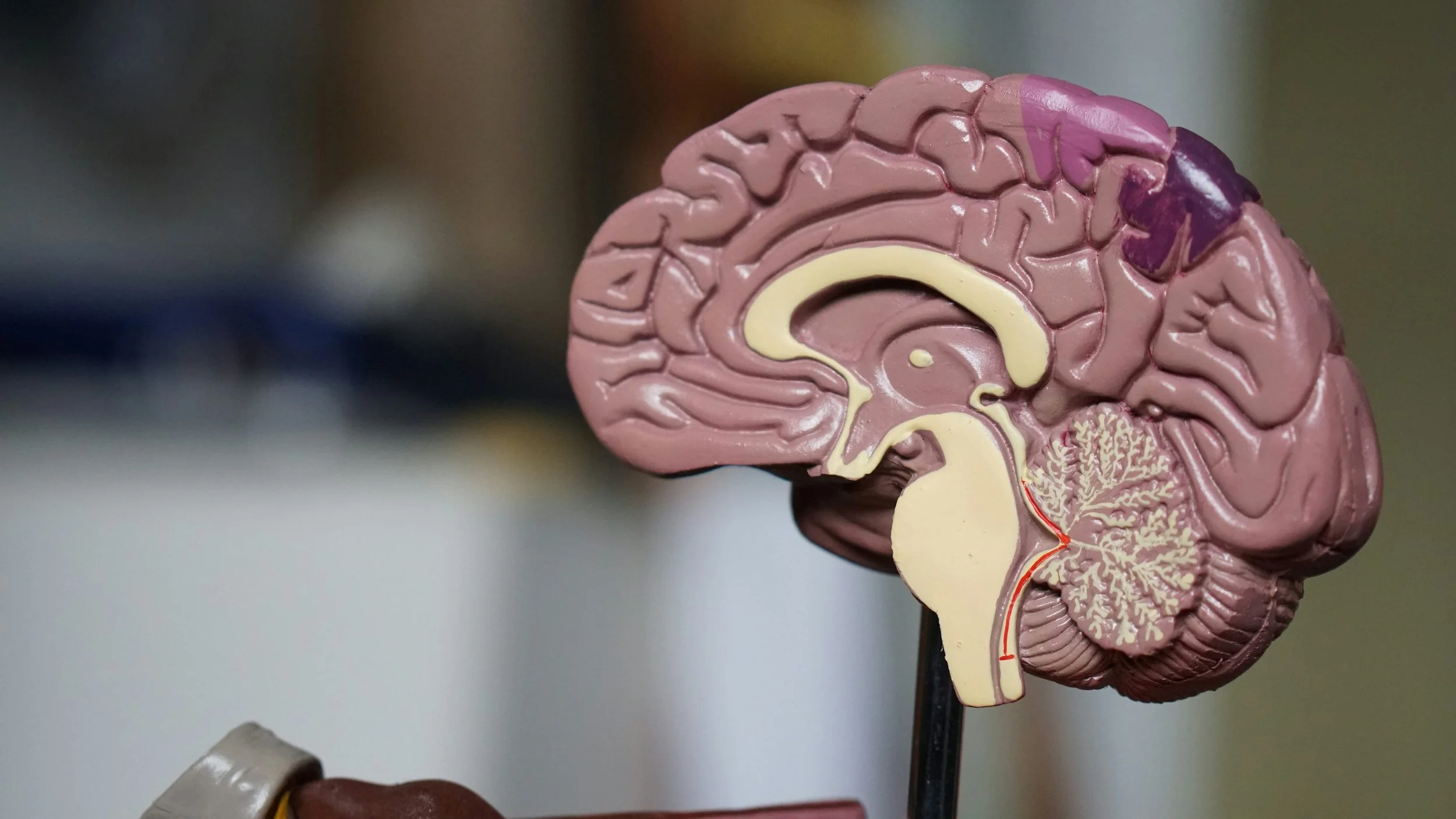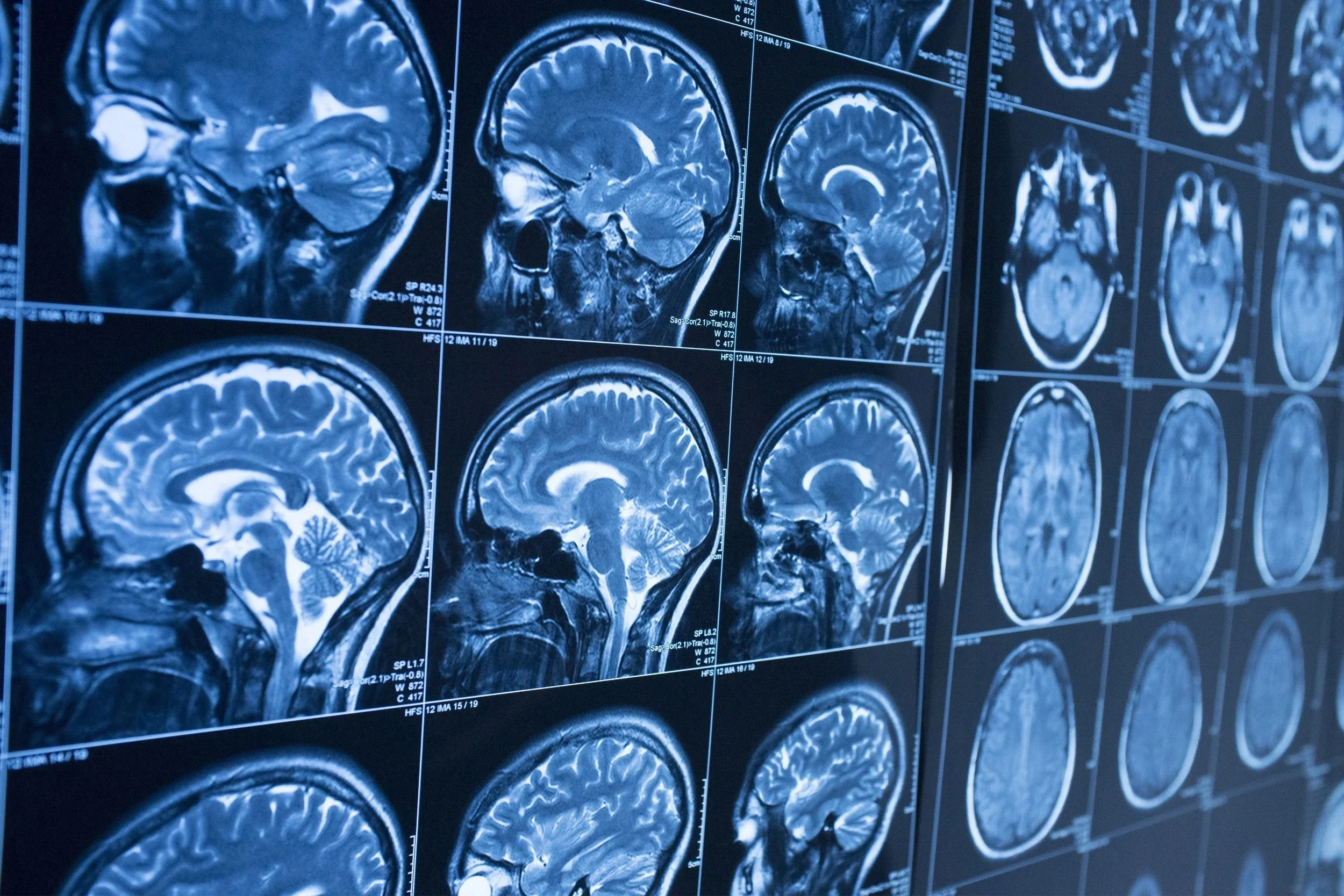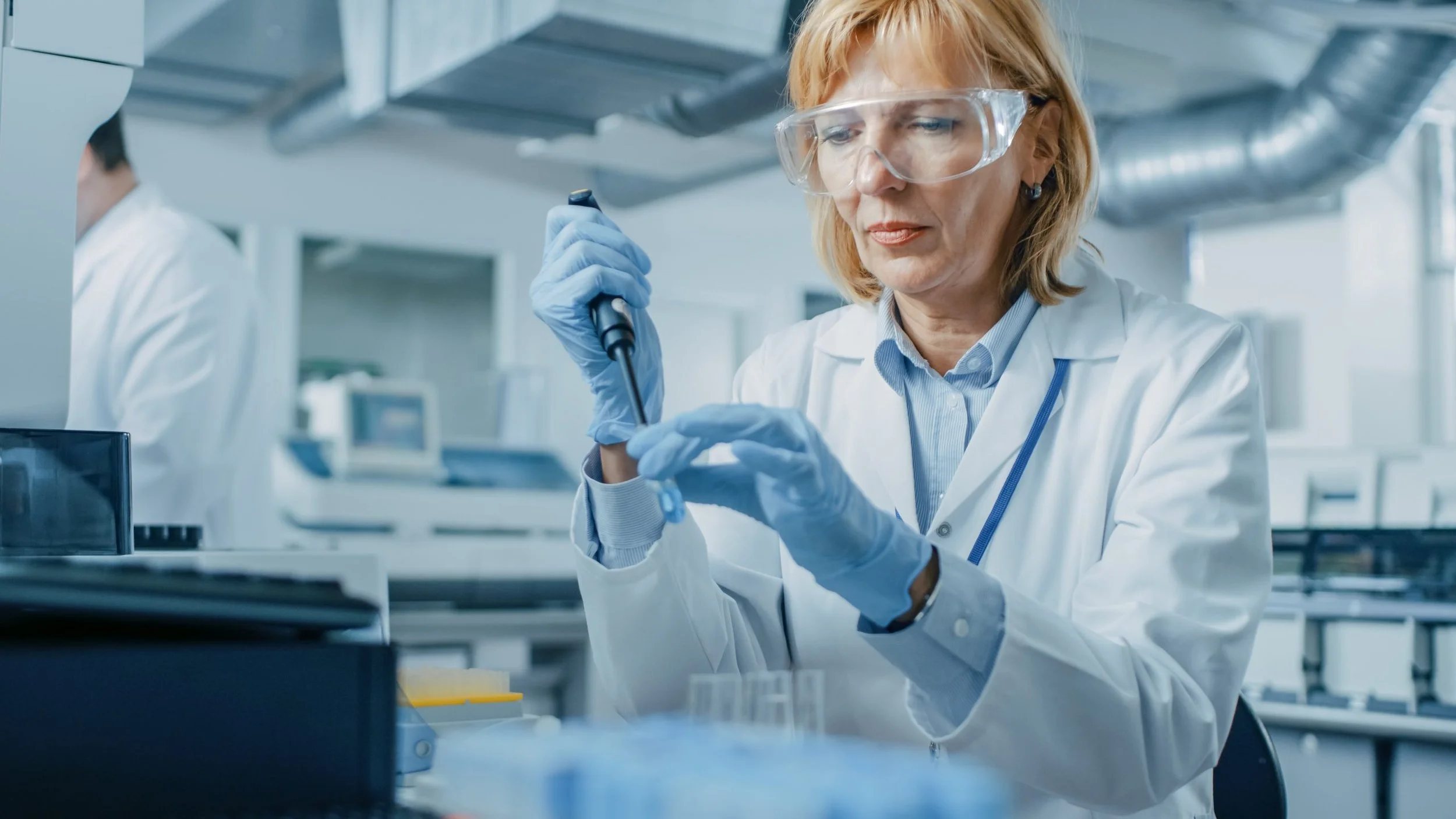Parkinson’s Disease
Is Angiogenesis a Treatment or Potential Cure?
Zhittya Genesis Medicine is developing a drug, fibroblast growth factor 1 (FGF-1), to possibly treat Parkinson's Disease by growing new blood vessels in ischemic tissue in the brain, particularly by reestablishing blood flow in dopamine-producing parts of the brain such as the substantia nigra.
Since May 2022, Zhittya Genesis Medicine has dosed over 200 individuals suffering from Parkinson's Disease in Medical Research Studies. Beyond demonstrating potentially impressive safety data, it has also reported improved motor scores of all Parkinson's patients in the study, with the average patient reporting a 53% improvement in their motor scores. Beyond improved motor scores, patients have reported non-motor improvements such as improvements in sleep quality, balance, cognition, among other qualities.
Our Data: Graphed
MDS-UPDRS Score v. Month
In 2024, Zhittya Genesis Medicine embarked on an ambitious new phase of research, aiming to validate reported patient outcomes through advanced empirical imaging. Partnering with Washington University in St. Louis—a globally recognized leader in cutting-edge research—Zhittya initiated a study involving fMRI scans of Parkinson’s patients before and after administering FGF-1. In January 2025, the first patient’s imaging results revealed a remarkable 21% increase in blood flow to the substantia nigra, a critical brain region affected by the disease. This breakthrough may represent the first documented case of therapeutically enhancing cerebral blood flow in medical history. Encouraged by these findings, Zhittya hopes that further patient results will reinforce this promising trend.

This is the pre-treatment fMRI scan of Z101’s brain, the first patient evaluated in the study. The image prominently features the substantia nigra—the region most impacted by Parkinson’s disease—where dark-red zones are visible both within and surrounding the area. These dark-red regions signify areas of inadequate blood perfusion, which we hypothesize may be a fundamental contributor to the development and progression of Parkinson’s disease.

This is the post-treatment fMRI scan of Z101’s brain, the first patient assessed in the study, captured six months following the initial FGF-1 administration. The image reveals a noticeable reduction in the dark-red areas within the substantia nigra, with the emergence of orange and yellow hues. These color shifts signify enhanced blood flow in this critical brain region, suggesting a positive response to the treatment.
History
FGF-1 is a potent stimulator of angiogenesis, the growth of new blood vessels, and is capable of growing new blood vessels in ischemic areas of the body, including the brain. Research has indicated that a lack of blood perfusion to dopamine producing neurons located in the substantia nigra region of the brain lead to a lack of dopamine and the classic symptoms of Parkinson’s Disease.
In the past, FGF-1 has been able to grow new blood vessels in the human body. In a US FDA Phase IIA clinical trial, conducted at the University of Cincinnati, our drug was able to grow new blood vessels in the hearts of individuals with coronary artery disease, improving many of their symptoms.
FGF-1 has also shown excellent efficacy in treating Parkinson’s Disease in Cynomolgus monkey models. After being injected with a neurotoxin that selectively destroys dopamine-producing neurons, the two groups of monkeys came down with the classic symptoms of Parkinson’s Disease. One group was a placebo group and another was administered FGF-1, which lead to improvement in motor scores, increased dopamine production, and decreased plaque build-up.
Watch as Zhittya Genesis Medicine’s drug is used to grow new blood vessels in the human heart in a US FDA Phase IIA Clinical Trial done at the University of Cincinnati, and reported by ABC Nightly News. Zhittya believes that by growing new blood vessels in the human brain, that the symptoms of Parkinson’s Disease can be alleviated.
Watch our theory of how we believe FGF-1 can be used to treat Parkinson’s Disease by growing new blood vessels in this animated video which shows our theory of our blood vessels grow, reestablish blood flow to dopamine producing regions of the brain, thereby increasing dopamine production in the brain, and relieving the symptoms of Parkinson’s Disease.
Our Partners
-
![]()
University of Nevada, Reno
Zhittya Genesis Medicine continues to cooperate and work with research and laboratory staff at the University of Nevada, Reno where Zhittya conducts some of its research related to FGF-1, Parkinson’s Disease, and more.
-
![]()
Cross Border Medical Tourism
Zhittya Genesis Medicine’s partner in patient facilitation, patient logistics, and operations based in Los Angeles, California. Cross Border Medical Tourism ensures that all of our patients are cared for throughout our programs.
-
![]()
WundHealing Biopharmaceuticals
Zhittya Genesis Medicine’s marketing partner based in Las Vegas, Nevada, helping Zhittya Genesis Medicine market and distribute our potential treatment following anticipated approval by the US FDA and other regulatory bodies.
News
-
![]()
December 2025 Update
A major initiative is underway to establish a Nevada constitutional amendment granting patients and physicians the freedom to access advanced medical innovations without FDA barriers. The proposal aims to replace the failed Right to Try system, which has helped only 21 patients nationwide in seven years. The effort has already attracted strong interest from U.S. and international biotech companies seeking faster paths to real-world research. Alongside this initiative, progress continues in diabetes, Parkinson’s, stroke, and heart disease studies, with growing momentum toward patient-driven, market-based medical innovation.
-
![]()
November 2025 Update
FGF-1 continues to deliver strong human results across multiple diseases. In Las Vegas, early participants in the type-2 diabetes study are rapidly reducing or eliminating medication, while enrollment demand remains overwhelming. Parkinson’s patients report sustained improvements in mobility, cognition, speech, and daily function, with no adverse events observed across hundreds treated. Preparations are underway to launch studies for chronic wounds and no-option heart disease in early 2026. Despite long-standing regulatory barriers, growing public, patient, and investor support signals accelerating momentum toward treatments that address root causes rather than symptoms.
-
![]()
October 2025 Update
FGF-1 continues to show powerful results, with Zhittya’s type-2 diabetes study in Las Vegas revealing early patient successes—some reducing or eliminating medication within weeks. Global interest is surging, especially across the Arab Gulf and India, where diabetes rates are highest. Funding for the 100-person study is nearly complete, with chronic wound trials next. Parkinson’s patients also report major recoveries, including medication withdrawal and restored mobility. CEO Dan Montano celebrates growing investor support and patient breakthroughs, declaring that after 27 years, Zhittya’s mission to cure vascular and neurodegenerative diseases is entering its most successful phase.
-
![]()
September 2025 Update
A groundbreaking discovery—cellular rejuvenation through FGF-1—reveals that this molecule restores normal cell function by repairing intracellular dysfunction, offering promise for aging, diabetes, and neurodegenerative diseases. The 100-person U.S. study to reverse type-2 diabetes begins soon, following prior success with 25 diabetes-free patients in the British Virgin Islands. Funding is 70% complete, with a second chronic wound healing study launching in October. Zhittya is also expanding manufacturing in Reno and advancing research in Parkinson’s, stroke, dementia, and Alzheimer’s, marking a new era of cellular repair and regeneration.
-
![]()
August 2025 Update
Zhittya Genesis Medicine’s August 2025 update highlights progress in reversing type-2 diabetes, with 25 patients in the British Virgin Islands now diabetes-free and U.S. trials in Las Vegas set to begin. Over half of the $5 million funding goal is already secured.
The company is also preparing trials for chronic wound healing in October and advancing FGF-1 studies in Parkinson’s, stroke, dementia, and Alzheimer’s through higher dosing.
CEO Dan Montano criticizes regulatory delays that have cost millions of lives and calls for urgent action to bring FGF-1 therapies to patients suffering from heart disease, diabetes, and neurodegenerative conditions.
-
![]()
July 2025 Update
Zhittya Genesis Medicine’s July 2025 update focuses on the launch of a major U.S.-based Medical Research Study to reverse type-2 diabetes, following success with 20 patients in the British Virgin Islands. The study in Las Vegas will explore optimized dosing across 100 participants. Zhittya also announced plans to investigate type-1 diabetes after emerging research showed FGF-1 may regenerate insulin-producing beta cells.
Progress continues in neurodegenerative diseases like Parkinson’s and MSA, with ongoing intranasal FGF-1 dosing studies. Patients report notable recoveries in cognition, mobility, and quality of life.
Funding efforts for medical research studies have already secured over $2 million, with more R&D partnerships planned. Zhittya criticizes systemic barriers and calls out Big Pharma for ignoring FGF-1’s curative potential. CEO Dan Montano reaffirms the company’s mission to cure, not manage, disease—urging urgency and purpose to deliver life-saving therapies.
-
![June 2025 Update]()
June 2025 Update
Zhittya Genesis Medicine’s June 2025 update emphasizes the urgency of advancing medical breakthroughs during a critical 43-month window. Key successes include reversing type-2 diabetes in the British Virgin Islands and launching FDA-approved studies in Nevada with 100 participants.
The company also progresses in treating neurodegenerative diseases like Parkinson’s, stroke, and dementia, with life-changing recoveries and improved dosing strategies. Their "Swift 6" initiative targets six major diseases with plans to produce results within nine months.
Showcasing innovations at FreedomFest 2025, Zhittya strengthens partnerships and public awareness. Having invested 27 years and $190 million, they remain committed to overcoming hurdles to deliver FGF-1 therapies for vascular and neurological conditions affecting millions.
-
![May 2025 Update]()
May 2025 Update
Zhittya Genesis Medicine’s May 2025 update highlights breakthroughs in medical innovation. Celebrating three years of Parkinson’s treatments, Zhittya showcased remarkable recoveries, including wheelchair-bound patients walking again. CEO Dan Montano’s interview on the Wayne Allyn Root Show spotlighted successes in treating Parkinson’s, stroke, and type-2 diabetes.
The company launched U.S.-based Medical Research Studies to reverse type-2 diabetes and neuropathy, building on prior 100% diabetes reversals among ten patients. FDA changes may accelerate treatment approvals, potentially cutting years from timelines.
A new biomanufacturing lab in Reno, Nevada, scales production of FGF-1, critical for vascular regeneration, while research into Long COVID addresses lingering symptoms in millions. Montano calls for swift action to achieve breakthroughs within a pivotal 44-month window, aiming to transform care for vascular-related diseases and save millions of lives.
-
![]()
April 2025 Update
Zhittya Genesis Medicine’s April 2025 update showcases groundbreaking advancements in FGF-1 therapy and advocacy for medical innovation. Dr. Jack Jacobs, President, was honored as Nevada Bio Organization’s Man of the Year for his 40-year career, notably treating over 200 Parkinson’s patients with significant recoveries and advancing FGF-1 for heart disease, stroke, dementia, Alzheimer’s, and type-2 diabetes. Zhittya’s research in the British Virgin Islands successfully reversed type-2 diabetes in 10 patients, highlighting the untapped potential of FGF-1, which remains stalled by regulatory barriers. The update calls for enhancing Nevada’s “Right to Try” law to spark an economic boom and accelerate access to treatments for neurodegenerative diseases, neuropathy, and stroke. CEO Dan Montano emphasizes a 45-month window to bypass FDA delays, rallying support to bring FGF-1’s life-saving potential to millions suffering from vascular-related diseases.
-
![]()
March 2025 Update
Zhittya Genesis Medicine’s March 2025 update highlights an overwhelming response to their Washington University fMRI study, which showed a 21% increase in brain blood flow after FGF-1 treatment. This has sparked global interest, particularly in its potential for stroke recovery.
The 5-week Neuropathy Medical Research Study reports an 80% reduction in foot pain, with more data expected in the coming months. Zhittya also announced five pending patents covering intranasal and injected FGF-1 treatments for Parkinson’s, brain diseases, diabetes, lung conditions, and neuropathy.
Additionally, Dr. Jack Jacobs has been named NevBio’s Man of the Year, with an award presentation on April 2 in Las Vegas. CEO Dan Montano recently appeared on the Joe Cortez Show, and Zhittya is launching its own Medical Information Show. Meanwhile, their Outreach Program is expanding, with clinics, doctors, and patients advocating for FGF-1’s groundbreaking potential.
-
![]()
fMRI Update
Zhittya Genesis Medicine’s fMRI update showcases a major breakthrough in their ongoing Parkinson’s research. The 6-month follow-up fMRI scan of a treated patient revealed a 21.2% increase in blood flow to the substantia nigra, supporting their hypothesis that restoring vascular function can slow, stop, or even reverse neurodegeneration. The patient’s motor skills improved by over 50%, aligning with data from over 200 patients, who showed an average 54% motor skill improvement within six months. Additional patients are undergoing follow-up scans, further validating these findings. Zhittya continues to advocate for broader patient access to FGF-1 therapy, which may represent a disease-modifying breakthrough beyond symptom management. CEO Dan Montano highlights its potential in treating Parkinson’s, stroke, dementia, neuropathy, and lung diseases, marking a paradigm shift in neurodegenerative treatment.
-
![]()
February 2025 Update
Zhittya Genesis Medicine’s February 2025 update highlights significant strides in their ongoing research on FGF-1 therapy. The final data from their first Parkinson’s patient’s 6-month follow-up brain scan revealed a 21% increase in blood flow to the substantia nigra, reinforcing their hypothesis that vascular dysfunction underlies neurodegenerative diseases. Zhittya also initiated new medical research studies on neuropathy and respiratory (lung damage) conditions, expanding the potential applications of FGF-1 therapy. The update emphasizes the urgent need to modify the “Right to Try Law” to grant patients quicker access to innovative treatments. CEO Dan Montano underscores the transformative potential of FGF-1 to address not only Parkinson’s but also stroke, dementia, neuropathy, and lung diseases, expressing hope for broader acceptance and accelerated patient access in the near future
-
![January 2025 Update]()
January 2025 Update
Zhittya Genesis Medicine’s January 2025 update celebrates a major breakthrough in their Parkinson’s disease research. A functional MRI scan from one of their patients, Al, revealed a 42% increase in blood flow to the substantia nigra region of the brain six months after receiving FGF-1 treatment. This empirical data provides scientific validation of Zhittya’s long-held hypothesis that vascular dysfunction is the root cause of Parkinson’s and other neurodegenerative diseases. Encouraged by this milestone, Zhittya plans to expand MRI testing to more patients and accelerate efforts to bring FGF-1 to those suffering from conditions such as Alzheimer’s, stroke, and diabetes. The company remains committed to advancing clinical studies and advocating for regulatory changes to make their groundbreaking treatment accessible. CEO Dan Montano expresses gratitude for the patients participating in their studies and remains optimistic about the transformative potential of FGF-1 in the coming years
-
![]()
December 2024 Update
Zhittya Genesis Medicine’s December 2024 update emphasizes the promising progress of their FGF-1 treatment in reversing Parkinson’s disease and potentially addressing other neurodegenerative conditions. The update highlights the significant improvements seen in patients, with some regaining cognitive and motor functions, and the anticipation surrounding MRI scans at Washington University to confirm increased blood flow in the brain. CEO Dan Montano expresses optimism for 2025, envisioning it as a breakthrough year with expanded clinical studies in heart disease, diabetes, and neurodegenerative disorders. Zhittya is actively advocating for regulatory reforms to accelerate patient access to FGF-1 under the “Right to Try” law. As they push for FDA approvals and Pre-IPO funding, the company remains dedicated to providing life-changing treatments while navigating regulatory challenges
-
![]()
November 2024 Update
Zhittya Genesis Medicine's November 2024 update showcases advances in their FGF-1 treatment research, highlighting its potential to heal vascular dysfunction in the brain. With nearly 200 Parkinson’s patients treated, new protocols delivering 40 times the initial dose show promising results in motor and cognitive improvements. The update discusses using FGF-1 to treat neurodegenerative diseases like dementia, ALS, and autism, and its success in promoting neurogenesis. A key milestone includes upcoming brain scans at Washington University to measure improved blood flow in treated patients. Zhittya remains focused on pre-IPO funding to drive its FDA compliance and clinical trials in 2025.
-
![]()
October 2024 Update
Zhittya Genesis Medicine's October 2024 update highlights continued progress in treating neurodegenerative diseases. A notable case is shared involving a patient who, despite a severe stroke three days prior to treatment, experienced significant recovery over nine months, regaining mobility and cognitive abilities. CEO Dan Montano reflects on the uphill battle faced against established medical institutions resistant to change. The update underscores Zhittya’s hypothesis that Parkinson’s and similar diseases stem from vascular dysfunction. Dr. Jacobs’s presentation in Kuwait was met with positive interest, emphasizing the potential of FGF-1 treatment.
-
![]()
September 2024 Update
Zhittya Genesis Medicine's August 2024 update outlines their continued progress in treating Parkinson's disease and severe heart disease. In the British Virgin Islands, Cohort #27 for Parkinson's treatment began, with the company having now treated 180 patients with no significant adverse events. The update highlights improved motor and mental skills in patients and discusses plans to refine dosing protocols for better outcomes. Zhittya also made advancements in heart disease treatment, obtaining clearance in The Bahamas and receiving an overwhelming response from patients. Additionally, Dr. Jacobs is scheduled to present in Kuwait on Parkinson's treatments in October, further expanding Zhittya’s global presence. The company continues to seek pre-IPO investment to support these initiatives.
-
![]()
August 2024 Update
Zhittya Genesis Medicine's August 2024 update outlines their continued progress in treating Parkinson's disease and severe heart disease. In the British Virgin Islands, Cohort #27 for Parkinson's treatment began, with the company having now treated 180 patients with no significant adverse events. The update highlights improved motor and mental skills in patients and discusses plans to refine dosing protocols for better outcomes. Zhittya also made advancements in heart disease treatment, obtaining clearance in The Bahamas and receiving an overwhelming response from patients. Additionally, Dr. Jacobs is scheduled to present in Kuwait on Parkinson's treatments in October, further expanding Zhittya’s global presence. The company continues to seek pre-IPO investment to support these initiatives.
-
![]()
July 2024 Update
Zhittya Genesis Medicine's June 2024 update highlights their significant advancements in medical research. The company has received regulatory clearance to begin studies for severe heart disease in The Bahamas, Parkinson's disease in The Bahamas, and critical limb ischemia in the British Virgin Islands. Their recent trip to the British Virgin Islands marked the dosing of their 175th Parkinson’s patient with FGF-1, showing promising results. Upcoming initiatives include presentations in Armenia and a strong presence at FreedomFest in Las Vegas. Zhittya is also seeking pre-IPO investment to fund these expanding operations and research efforts. CEO Dan Montano underscores the urgency of advancing treatments, particularly for heart disease, the leading cause of death globally.
-
![]()
June 2024 Update
Zhittya Genesis Medicine's June 2024 update highlights their significant advancements in medical research. The company has received regulatory clearance to begin studies for severe heart disease in The Bahamas, Parkinson's disease in The Bahamas, and critical limb ischemia in the British Virgin Islands. Their recent trip to the British Virgin Islands marked the dosing of their 175th Parkinson’s patient with FGF-1, showing promising results. Upcoming initiatives include presentations in Armenia and a strong presence at FreedomFest in Las Vegas. Zhittya is also seeking pre-IPO investment to fund these expanding operations and research efforts. CEO Dan Montano underscores the urgency of advancing treatments, particularly for heart disease, the leading cause of death globally.
-
![]()
May 2024 Update
Zhittya Genesis Medicine’s latest update provides an insightful overview of their ongoing efforts and groundbreaking research in 2024. The company has achieved significant milestones, including the first brain scan measuring blood perfusion in a Parkinson’s patient and a successful spinal tap delivery of FGF-1. Their recent conference in The Bahamas highlighted potential treatments for Parkinson’s and coronary heart disease, and they are planning new applications for critical leg ischemia and diabetic foot ulcers. Celebrating two years of treating Parkinson's patients, Zhittya has treated over 150 subjects and continues to work with US agencies to seek approval for their innovative treatments.
-
![]()
Zhittya Research Study Approved in The Bahamas!
Zhittya Genesis Medicine has obtained regulatory clearance to begin conducting research studies in The Bahamas. Zhittya Genesis Medicine will begin utilizing FGF-1 in patients suffering from Parkinson’s disease utilizing an intranasal delivery method. Zhittya plan to begin these studies in the coming months.
-
![]()
-
![]()
Zhittya Doses 150th Patient
April 2024:
Zhittya Genesis Medicine is proud to announce that they have dosed their 150th Parkinson’s Disease patient in their medical research studies, proving as a substantial milestone for Zhittya’s potential treatment. With 150 patients now dosed, Zhittya has seen no reported adverse events and a 53% improvement, on average, in reported motor scores. -
![]()
April 2024 Update
This update from Zhittya Genesis Medicine, dated April 2024, highlights their continued efforts in advancing treatments for Parkinson’s disease and other health conditions using FGF-1. The company celebrates treating over 150 Parkinson's disease sufferers with notable improvements and minimal side effects. As the two-year mark approaches since the first human dosing, they are beginning to gather long-term efficacy data. Furthermore, the update contrasts FGF-1 treatment with deep brain stimulation (DBS), emphasizing FGF-1's non-invasive application and broader health benefits over the surgical and potentially riskier DBS.
-
![]()
-
![]()
March 2024 Update
Zhittya Genesis Medicine’s March 2024 update discusses their recent activities, particularly focusing on the treatment of Parkinson's disease patients with FGF-1 through their ongoing medical research studies. The company's ongoing research is exploring how continual dosing with FGF-1 can aid in the recovery and improvement of patients' conditions. Despite the uncertainties and the complex journey of discovery, positive changes in patients have been observed, leading to renewed hope and potential treatment strategies. Additionally, the update delves into the intriguing aspect of where the administered FGF-1 goes within the brain, considering the vast number of molecules unaccounted for and the possible extensive repair work being undertaken within the brain's complex structure.
-
![]()
February 2024 Update
Zhittya Genesis Medicine’s February 2024 update details the company's busy start to the year, with significant developments in their research and treatment offerings, particularly focusing on FGF-1's potential in addressing various diseases. Zhittya recounts successful presentations and interactions at the Dubai Cardiovascular Conference, emphasizing the international medical community's growing interest in FGF-1 for treating small vessel heart disease, Parkinson’s disease, and other neurodegenerative conditions. Additionally, it highlights the progress in brain scanning and blood flow imaging studies, aiming to empirically demonstrate FGF-1's effectiveness in improving cerebral blood perfusion.
-
![]()
January 2024 Update
Zhittya Genesis Medicine’s January 2024 update provides an insightful overview of their ongoing efforts and groundbreaking research in 2024. The company is making strides in treating Parkinson's disease especially as they work to develop strategic collaborations with renowned medical imaging centers in the United States and Italy. These partnerships aim to scientifically demonstrate how FGF-1 enhances brain blood flow and potentially reverses disease symptoms.





